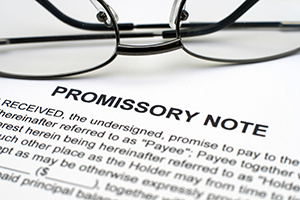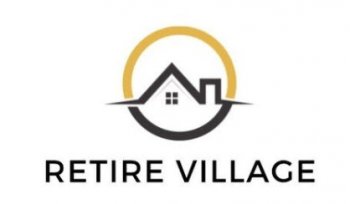Allen Masri
Federal Benefit Consultants
Promissory Notes May Not Be Real Promises
Promissory Notes May Not Be Real Promises
 If you are considering the purchase of a promissory note, be aware of warning signs that may signal a scam.
If you are considering the purchase of a promissory note, be aware of warning signs that may signal a scam.
In the news, a few months ago, was a story about rich NBA and NFL athletes being defrauded by more than 19 million dollars. They had purchased high-interest promissory notes through their financial planner, and as it turned out, the promise backing up those notes was worthless.
Scams involving promissory notes often appear as people searching for a higher interest rate buy what often seems too good to be true: high-interest promissory notes. The promise of high guaranteed rates of interest makes these very tempting in today's low-interest-rate environment. Anyone considering investing in promissory notes needs to check them out thoroughly. Promissory notes sound simple and safe and appear an attractive alternative to stocks and bonds. While they can be legitimate investments, some promissory notes sold to individual investors can be fraudulent.
According to FINRA (www.finra.org), recent fraudulent schemes include promissory notes purported to be secured by investments in real estate, US Treasuries, brokerage firms, and various businesses. Investors need to understand the investment they are considering and be aware of warning signs that may signal a scam.
A promissory note is a form of debt that companies can use to raise money, like loans or private issue bonds. The company, through the notes, promises to return the buyer's funds (principal) and to make fixed interest payments to the buyer in exchange for borrowing the money. Promissory notes have set terms, or repayment periods, ranging from a few months to several years.
Problems with promissory notes fall into three main categories: fraud, unregistered securities, and unregistered sellers. Fraudulent promissory note programs are often characterized by deceptive statements such as:
1) investors will receive very high, double-digit returns;
2) returns are guaranteed, and
3) the notes are backed by collateral to guarantee them. Often, promissory note schemes target the elderly and their retirement savings.
Promissory notes are usually classified as securities and must be registered with the SEC or the state in which they are sold. Nonregistration of the promissory note sellers can also be a violation. Depending on the number of notes and the state of residence, registering with the state or the SEC could be a requirement.
If you are considering purchasing a promissory note, you need to protect yourself with information. Be aware of unusual or pushy sales practices, ask the seller why you should be considered a qualified buyer. Is the promissory note bona fide? Who is issuing the note, and who is guaranteeing the note? Does the note carry any personal guarantees from the issuer? If the note is offering higher than market returns, ask why? What are the funds being used for?
If you consider investing in promissory notes, make sure you conduct a thorough and complete investigation before committing to purchase. Many good sources are available to make sure the operation is legitimate.

Allen Masri
Federal Benefit Consultants
1836 N. Pine Island Rd.
Plantation, Florida 33322
allen.masri@retirevillage.com
(786) 398-7260


Looking For Answers?
Download our Safe Money Guide and learn more about safe retirement options that can help you achieve your retirement goals safely - FREE!

